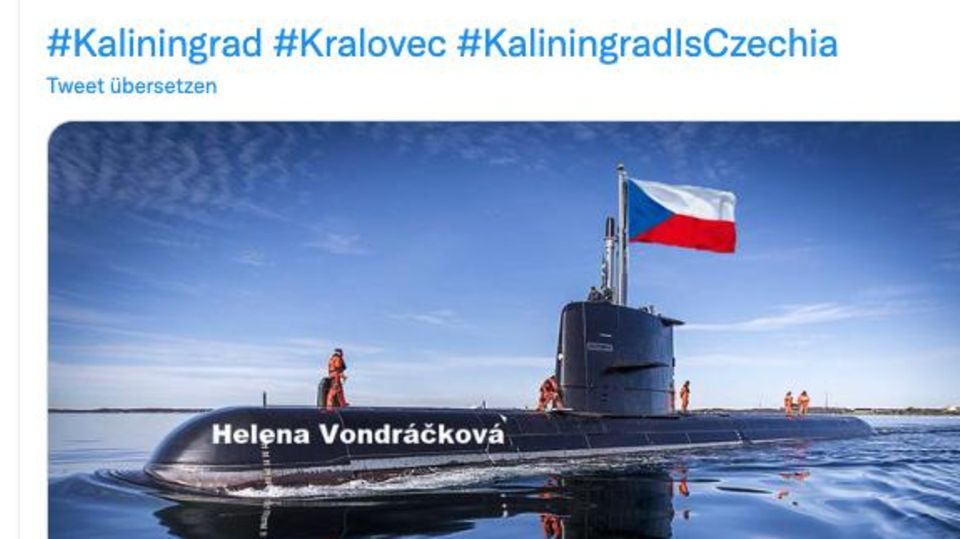Kaliningrad
Poland renames Russian exclave – residents scoff at the move
Watch the video: Poland renames Kaliningrad – Russian residents scoff at the move.
An announcement by Poland that it would call the Russian city of Kaliningrad on the Baltic Sea Królewiec caused astonishment among its citizens. The city had the German name Königsberg until the end of the Second World War. After its annexation by the Soviet Union, it was renamed in honor of politician Mikhail Kalinin. The Polish government believes that Kalinin’s connection to the 1940 Katyn massacre, in which thousands of Polish officers were executed by Soviet forces, renders the name untenable. On the streets of Kaliningrad, however, the announcement on Wednesday was seen quite differently. “I know that there are geographical places that we call differently. And other countries call them their own way. If there is a historical reason for them to call us that, I don’t understand why they don’t use Königsberg. But actually I do not care.” “The Lithuanians put up street signs with Królewiec a long time ago. So what? Nothing will change, apart from the fact that they would have to rewrite all their documents. They should do it.” “I’m against it. I like our name. Kaliningrad. I’m happy that I’ve lived here since I was born. I like our name very much.” “Our fathers conquered the town of Koenigsberg. They also conquered land for the Poles and handed it over. People always want more. Those hyenas.” “That’s what happened after the victory over fascism. This is our territory, there can be no Królewiec.” “It’s a very strange decision. It’s a fake. Nobody’s going along with it. Certainly not the residents of Kaliningrad.” “Well, I would understand Königsberg. But that’s nonsense.” The town bore the name of Krolewiec during the rule of the Polish Kingdom in the 15th and 16th centuries.
The Polish government wants to call Kaliningrad Królewiec in the future. The current name is untenable because of the connection of the namesake Mikhail Kalinin to the Katyn massacre. The inhabitants of the Russian exclave react mockingly.
Poland only wants to call the Russian enclave of Kaliningrad by its former Polish name. According to a recommendation by a naming commission, the area should now only be called Krolewiec in official Polish usage and on maps, the government in Warsaw announced on Wednesday. Meanwhile, Russia summoned the Polish chargé d’affaires to Moscow because of another dispute. “We don’t want Russification in Poland, so we decided to call Kaliningrad and its region in our own language,” said Development Minister Waldemar Buda on Wednesday. Kremlin spokesman Dmitry Peskov disapproved of the change, saying it bordered on “insane” what was happening in Poland. “It does not do Poland any good. These are not just unfriendly actions: they are hostile actions,” he said.
The name of Kaliningrad goes back to Mikhail Kalinin
Founded in 1255 by the Teutonic Knights, the city of Kaliningrad became the capital of the Order in the mid-15th century, then successively that of the Duchy, Kingdom and Free State of Prussia. The original name Conigsberg in honor of the Bohemian King Ottokar II evolved into Königsberg in German and Krolewiec in Polish. In 1946, after the city was captured by the Soviet Union in World War II, it was given the name of Kaliningrad in memory of the Chairman of the Presidium of the Supreme Soviet of the USSR, Mikhail Kalinin. Thousands of Polish officers of the Soviet political police were executed there in 1940.
Renaming causes criticism from Russia
“The naming of a large city near our border after Kalinin, a criminal who was partly responsible for deciding on the mass execution of Polish officials in Katyn in 1940, evokes negative emotions in Poland,” Buda said. Russia refused to admit the massacre until the 1990s. The upheavals in Polish-Russian relations were also reflected in the appointment of the Polish chargé d’affaires in Moscow on Wednesday. This was the Russian Foreign Ministry’s response to pro-Ukrainian activists preventing the Russian ambassador in Warsaw from laying flowers at the Soviet memorial on Tuesday to commemorate the end of World War II.


